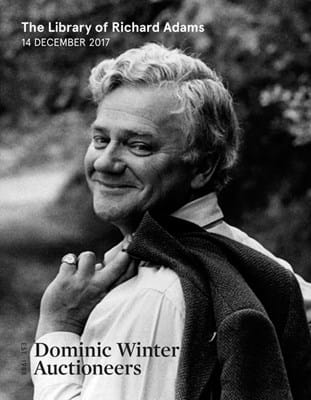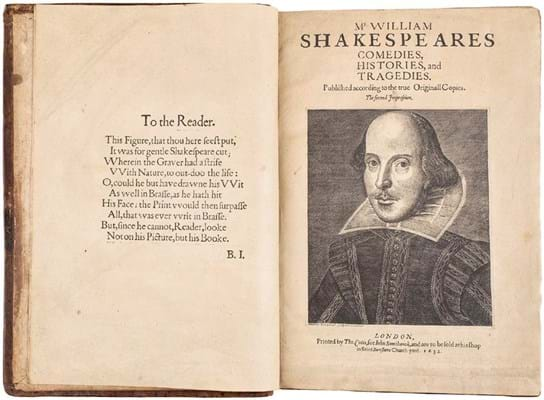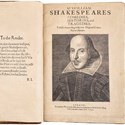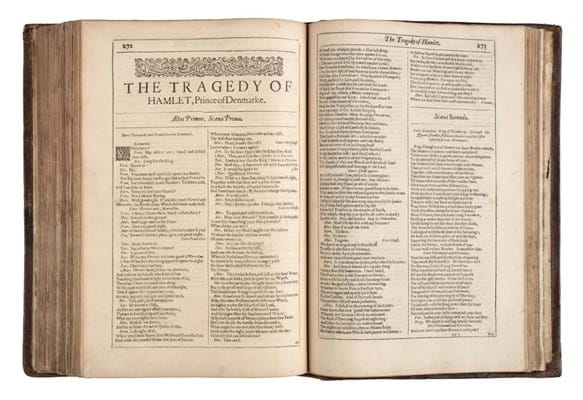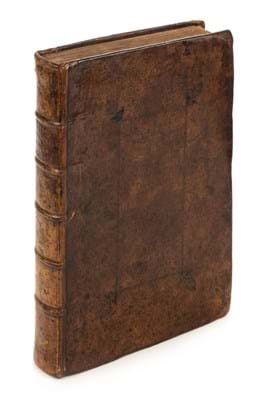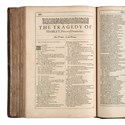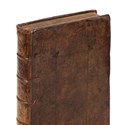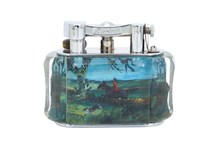The large library was consigned by the author’s family to Dominic Winter of Cirencester who divided the 1500 books into 134 lots and generated a total of over £250,000.
Adams, who died last year aged 96, acquired books over his lifetime and built up an impressive collection which included a complete set of first editions by Jane Austen that made £66,000 and a copy of Samuel Johnson’s Dictionary printed in 1755 that made £9200.
Adams was a great lover of Shakespeare and used five quotations from the Bard as epigraphs at the beginning of chapters for Watership Down. His copy of the Second Folio was one of the 1000 or so that were originally printed of which it is believed fewer than 200 copies are still in existence.
They were printed by Thomas Cotes and have five variants to the title-page of the issue – one for each of the five publishers in the ‘syndicate’ who each took a share of the print run to sell in their shops.
While principal publisher Robert Allott was the main publisher, the rarest copies of the Second Folio have the imprint on the title page to William Aspley (who was also a partner in the First Folio). An example of a Second Folio with the ‘Aspley imprint’ made for $177,500 (£122,795) at PBA Galleries in San Francisco in 2016.
The Richard Adams copy however was not as rare and had a facsimile on old paper (rather than the original) title-page bearing the name of fellow publisher John Smethwick under the famous Shakespeare portrait by Martin Droeshout.
With two further facsimiles (including the ‘Effigies’ leaf), as well as two restored preliminary leaves, the auctioneers in Gloucestershire sensibly pitched the copy at a lesser level for the auction on December 14.
Estimated at £40,000-60,000, it was eventually knocked down at the lower end of this range.


